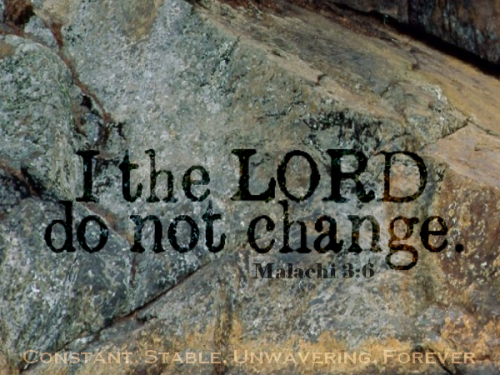Divine Permanence and Our Doubts

What a wonder to realize, truly realize, the importance of divine permanence. God’s own lack of change amidst our ever-changing world is hard to grasp at first. We are told in Romans 8:38, “For I am persuaded that not even death or life, angels or rulers, things present or things to come, hostile powers, height or depth, or any other created thing will have the power to separate us from the love of God that is in Christ Jesus our Lord!” Nothing in creation can separate us from the love of God . What a marvelous wonder! So what does this biblical promise mean then in regards to our struggles with doubt?
As all-encompassing as our doubts can feel at times, we can surely be encouraged that our doubts are not divine. They are not eternal. Our doubts are man-made and created things. This means that the above mentioned passage applies to them as well. Our doubts can NOT separate us from the love of God! No matter what fear or dark thoughts might spawn from them in ever realistic fashion, God is immutable and unchanging. When He said, “My Child, I love you.” He didn’t stutter and he didn’t mean only as long as you hold strongly to certainty. He meant merely that He loves you and that, reliably, will not change.
We can take solace then in knowing we have a freedom in doubt. We are safe to ask questions and struggle with doubt. We can lay that fleece on the ground and expect and answer from our God. We don’t have to hide from our doubts, afraid of what they might mean. But instead, we can turn and face them, assured of the safety we are promised in God’s permanence written of in Romans 8. God’s divine permanence guarantees that we can struggle with and overcome our doubts without fear of rejection or failure. Take heart.